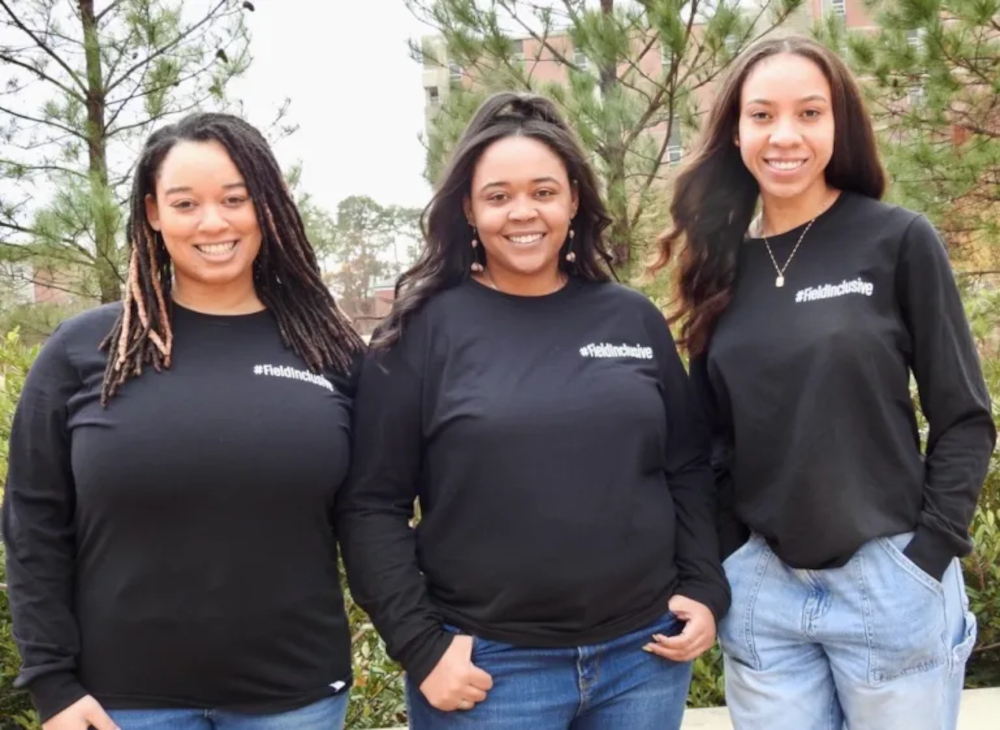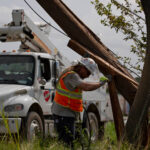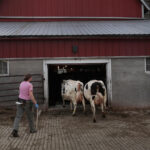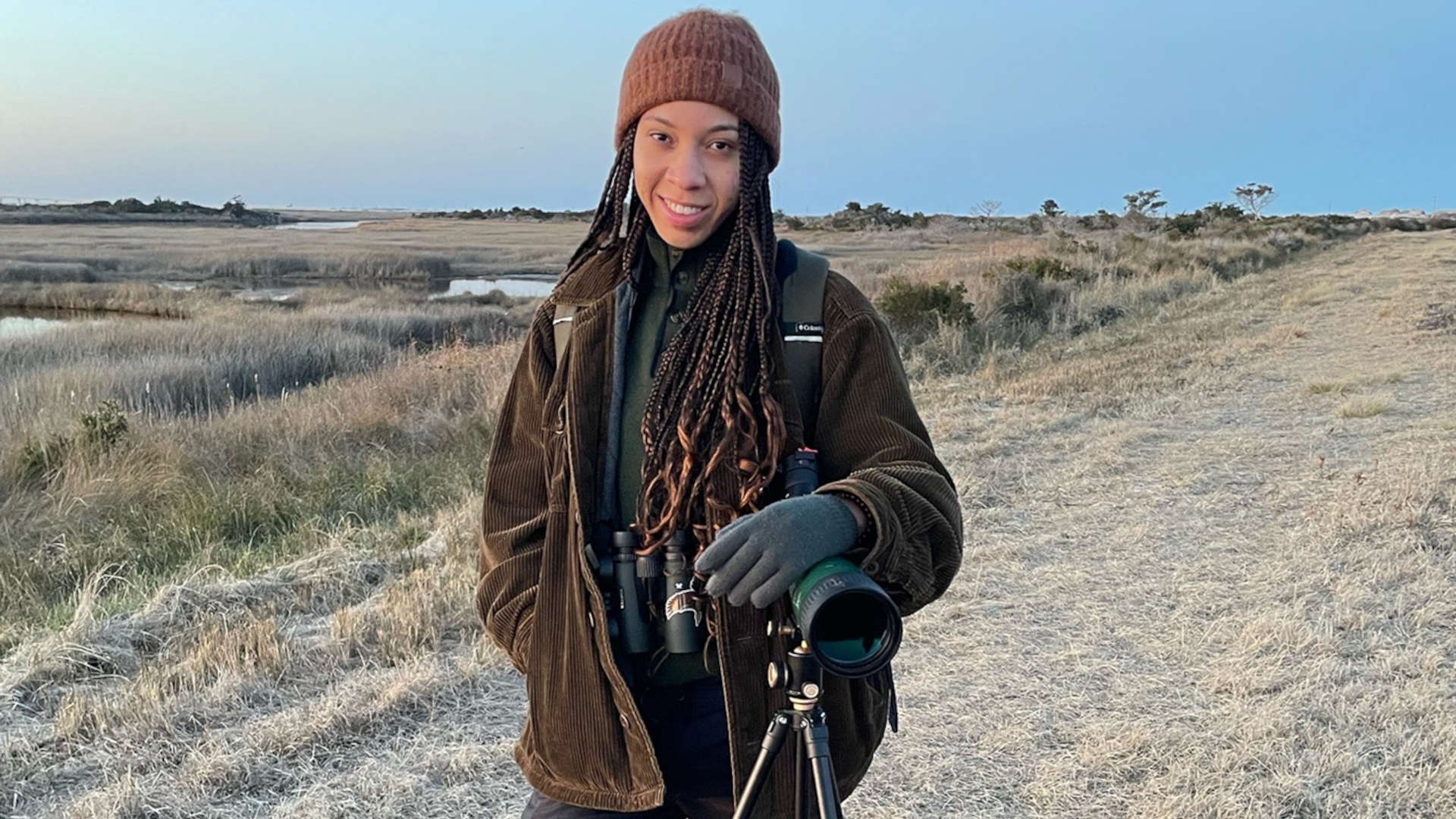As a masters student and forestry researcher, I can say from firsthand experience that spending time in nature is one of the most rewarding aspects of doing environmental field work. Not only do those of us who work professionally outdoors find peace and joy in what we do, we are, in a way, protectors of the Earth. From wildlife biologists to foresters, we work to protect what we love.
As a Black woman, however, I’ve learned that the duty of conserving and protecting our planet isn’t always as easy for people like me as it is for others. Often, people from underrepresented racial, religious, and gender groups and other marginalized communities have been made to feel unwelcome in natural spaces, where they should feel safe, secure, and at peace.
This marginalization and exclusion parallels broader trends in workplace discrimination. A recent survey by the Society for Human Resource Management found that 34 percent of Black workers in the U.S. reported being treated unfairly in their work field in the past year because of their race or ethnicity. In a 2021 survey, 9 percent of respondents who identified with the LGBTQ community reported that they were let go or not chosen for a job due to discrimination in the past year. A study published last year in the sociological research journal Socius suggests that 27 percent of American workers have encountered workplace discrimination due to their religious affiliation.
In the relative isolation of the outdoors and in the unfamiliar communities that field researchers often enter in the course of their work, the potential dangers of these kinds of maltreatments can be magnified. As Cornell University’s Amelia-Juliette Claire Demery and Monique Avery Pipkin wrote in a 2020 commentary for the journal Nature Ecology & Evolution, a field worker’s identity may be perceived “as a biased marker of danger to the community, putting them at risk from law enforcement and vigilante behaviours.” This kind of prejudice-based conflict, they wrote, “can threaten a researcher’s physical health and safety, up to and including their life.”
That’s not just empty hyperbole: The Cornell analysis describes instances of non-traditional field scientists seeing hate symbols inscribed at or near their research sites, experiencing discriminatory slurs, and even having law enforcement called on them — sometimes with guns drawn.
To raise awareness about these issues — and to bolster efforts to combat them — students at North Carolina State University launched a nonprofit organization called Field Inclusive last year. In November, I joined the organization as their first intern. For me, the work is personal. I myself have experienced slights while working in the field that were hard for me to ignore: not-so-flattering comments about my hair, strange looks at my cultural tattoos. And in my time with Field Inclusive, I have learned that I am far from alone.
Like the Cornell researchers, we have received many testimonials from researchers of color about disquieting encounters they’ve had in the field. One racial minority graduate student researcher described experiencing possible discrimination while she was observing American robin behavior at her field site, a local tree nursery in Urbana, Illinois. A bystander called the police and reported her group for suspicious behavior. A police officer arrived and proceeded to question her and her colleagues while also asking them for identification and had them wait on the side of the road as he identified them individually. While she said she couldn’t be sure the call was racially motivated, the fear that she must have felt during this encounter is nothing short of terrifying. Unfortunately, encounters such as this one happen more frequently than assumed.
It is but one of many examples of how field workers from marginalized groups have been made to feel unwelcome and unsafe in unfamiliar outdoor environments. These encounters not only rob people of precious time that could have been used to get work done, they can also take an emotional and psychological toll.
The pattern of discrimination is almost certainly linked to the lack of diversity in this career field. According to the jobs website Zippia, 81 percent of natural resource specialists — careers that include forestry, conservation, and land management — are White, and roughly 57 percent are male. These disparities have deep historical roots. Jobs in natural resources management were often dominated by White males with backgrounds in hunting and similar consumptive activities. People of color widely lacked access to mentors, job opportunities, and positive nature-related experiences. Indeed, some of the country’s National Parks remained segregated well into the mid-twentieth century.
As of late, the field has become more inclusive in most aspects, but there is still a long way to go. Our hope is that Field Inclusive can do a small part to help us get there.

Our organization aims to support and give voice to people from marginalized and historically excluded groups who work outdoors in the field of natural resources. We’ve hosted webinars and invited speakers who identify as members of marginalized communities to talk about their experiences in the field, and discriminatory encounters they’ve overcome. We’ve used social media to spread awareness and build community, inviting others to share their own testimonials. And we’ve promoted risk-mitigation strategies, such as engaging in fieldwork in groups whenever possible, or wearing apparel affiliated with one’s sponsoring university or research institution while in the field.
Ultimately, we want to advocate for tangible and actionable improvements that make field research a more just, equitable, diverse, and inclusive pursuit. An integral step is to make sure people know that these discriminatory practices exist.
After all, we all call this planet home. We can all be its protectors. We should all take pride in protecting it together. And the duty of protecting our beautiful home should be a welcoming experience for all.
Kayla A. Stukes is a masters student in Forestry at North Carolina State University and an intern with Field Inclusive, a nonprofit that seeks to raise awareness for a more inclusive outdoors.











